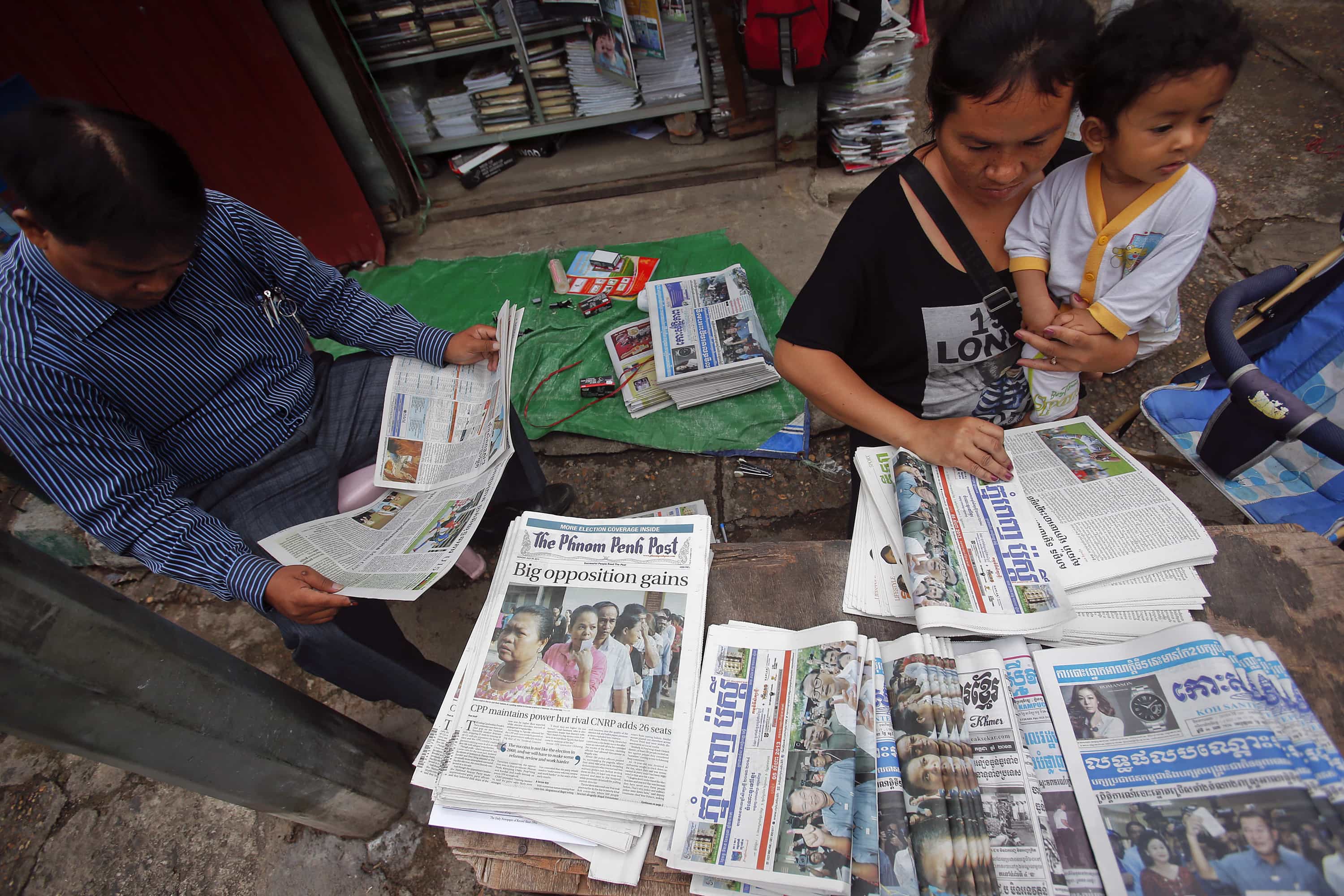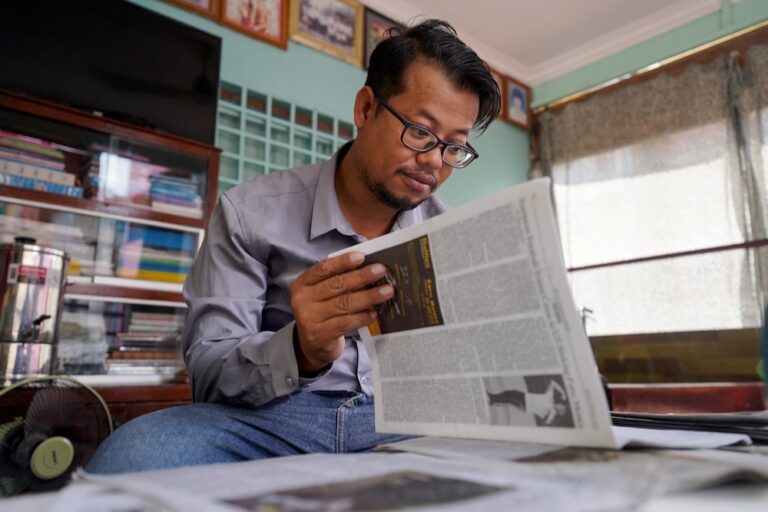Organisations call on the Cambodian government, especially the Ministry of Information, the judicial system, media organizations, civil society and development partners to take a number of concrete steps to allow journalism to thrive.
This statement was initiated by CCIM, CCHR and ACT. It was published on 30 April 2015.
In recent years, journalists and media workers in many parts of the world have been attacked, detained and even murdered, and publications have been censored or shut down. Such restrictions on freedom of the press stifle independent media and freedom of expression, which are fundamental to the development of democratic societies.
World Press Freedom Day on May 3 should serve as a reminder to governments, media institutions and civil society of the need to work together to overcome these obstacles, and ensure that a pluralistic and independent media sector is protected.
Ahead of this year’s World Press Freedom Day, we, the undersigned organizations, call on the Cambodian government, especially the Ministry of Information, the judicial system, media organizations, civil society and development partners to take the following concrete steps to allow journalism to thrive:
– The Ministry of Information should create a fully transparent and independent licensing body to ensure broadcast licenses are issued fairly, promoting a plurality of voices and opinions on the nation’s airwaves; The Ministry should immediately release a listing of
existing radio and television frequencies and their ownership;
– The judicial system and the courts should take steps to end impunity for those who commit violence against journalists. Specifically, prosecutors should re-open investigations into the cases of12 of the 13 journalists murdered since the first democratic elections in 1993 whose cases have yet to see a conviction;
– Owners and publishers of media outlets should take steps to ensure their media is independent, or free from the influence of political or business interests. Media outlets should ensure compliance to the Cambodian Journalists’ Code of Ethics;
– News outlets should prioritize the transition to digital and online media, as the country’s Internet penetration increases and Cambodians turn to the Internet and particularly social media for their news;
– NGOs should work to complement the Ministry of Education’s recent decision to incorporate media literacy education into high school curriculum in order to ensure that Cambodian youth have the critical thinking skills needed to differentiate between online
news and rumors;
– The Ministry of Information should prioritize its work on developing an Access to Information Law that will open up public information to journalists and other citizens, allowing for fact-based and investigative reporting that will benefit everyone. The government should promote the availability of public information, especially on the internet;
– The national Assembly should amend the penal code to decriminalize defamation (article 305), insult (article 502), malicious denunciation (article 311) and discrediting judicial decisions (article 523) as they undermine freedom of expression.
Moreover, we affirm our commitment to work with the above-mentioned parties, if given the chance, to achieve these goals and to push for better journalism in Cambodia.
Groups endorsing this statement:
1. ActionAid Cambodia
2. Alliance for Conflict Transformation (ACT)
3. Cambodian Center for Independent Media (CCIM)
4. Cambodian Center for Human Rights (CCHR)
5. Cambodian Human Rights Action Committee (CHRAC)
6. Community Legal Education Center (CLEC),
7. DanChurchAid/ChristianAid (DCA/CA)
8. Diakonia
9. Freedom House
10. Housing Rights Taskforce (HRT)
11. Reporters Without Borders
12. Sahmakum Teang Tnaut (STT)
13. Southeast Asian Press Alliance (SEAPA)
14. Transparency International Cambodia



